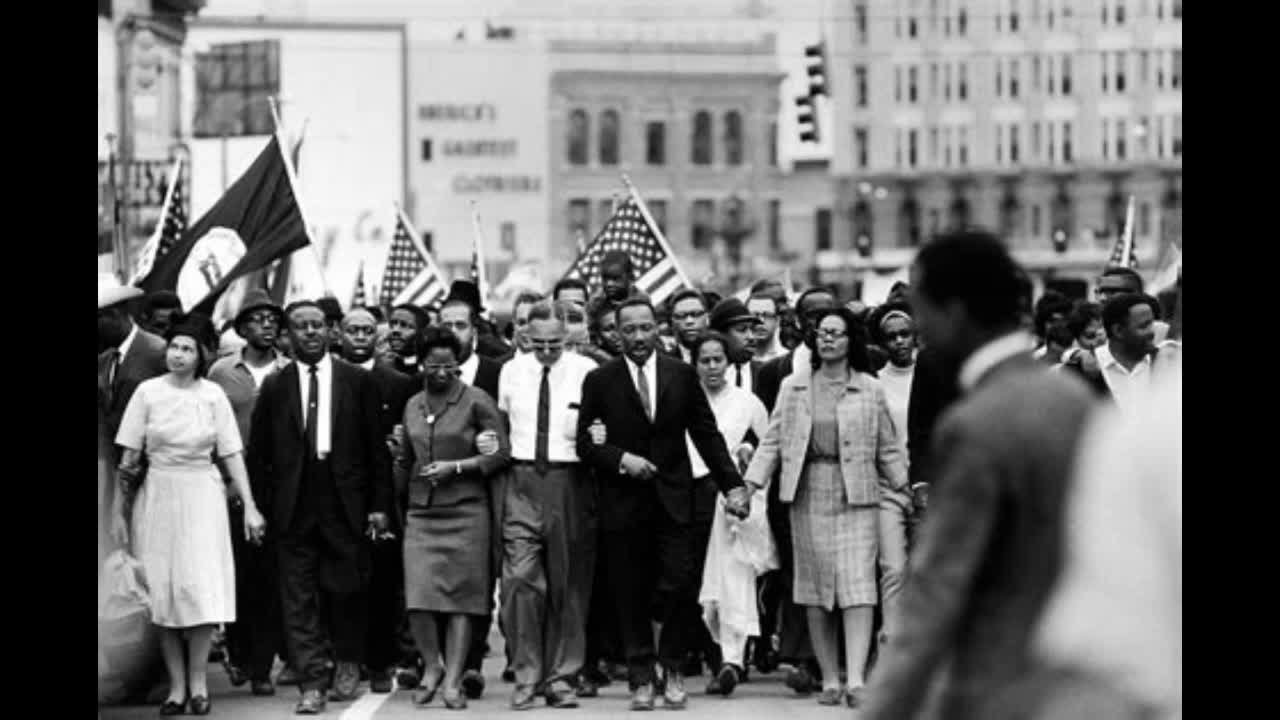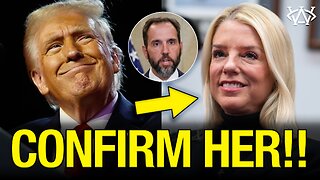Premium Only Content

Black History: Civil Rights Movement Timeline
The civil rights movement was an organized effort by Black Americans to end racial discrimination and gain equal rights under the law. It began in the late 1940s and ended in the late 1960s. Although tumultuous at times, the movement was mostly nonviolent and resulted in laws to protect every American’s constitutional rights, regardless of color, race, sex or national origin.
July 26, 1948: President Harry Truman issues Executive Order 9981 to end segregation in the Armed Services.
May 17, 1954: Brown v. Board of Education, a consolidation of five cases into one, is decided by the Supreme Court, effectively ending racial segregation in public schools. Many schools, however, remained segregated.
August 28, 1955: Emmett Till, a 14-year-old from Chicago is brutally murdered in Mississippi for allegedly flirting with a white woman. His murderers are acquitted, and the case bring international attention to the civil rights movement after Jet magazine publishes a photo of Till’s beaten body at his open-casket funeral.
December 1, 1955: Rosa Parks refuses to give up her seat to a white man on a Montgomery, Alabama bus. Her defiant stance prompts a year-long Montgomery bus boycott.
January 10-11, 1957: Sixty Black pastors and civil rights leaders from several southern states—including Martin Luther King, Jr.—meet in Atlanta, Georgia to coordinate nonviolent protests against racial discrimination and segregation.
September 4, 1957: Nine Black students known as the “Little Rock Nine” are blocked from integrating into Little Rock Central High School in Little Rock, Arkansas. President Dwight D. Eisenhower eventually sends federal troops to escort the students, however, they continue to be harassed.
September 9, 1957: Eisenhower signs the Civil Rights Act of 1957 into law to help protect voter rights. The law allows federal prosecution of those who suppress another’s right to vote.
February 1, 1960: Four African American college students in Greensboro, North Carolina refuse to leave a Woolworth’s “whites only” lunch counter without being served. The Greensboro Four—Ezell Blair Jr., David Richmond, Franklin McCain and Joseph McNeil—were inspired by the nonviolent protest of Gandhi. The Greensboro Sit-In, as it came to be called, sparks similar “sit-ins” throughout the city and in other states.
November 14, 1960: Six-year-old Ruby Bridges is escorted by four armed federal marshals as she becomes the first student to integrate William Frantz Elementary School in New Orleans. Her actions inspired Norman Rockwell’s painting The Problem We All Live With (1964).
1961: Throughout 1961, Black and white activists, known as freedom riders, took bus trips through the American South to protest segregated bus terminals and attempted to use “whites-only” restrooms and lunch counters. The Freedom Rides were marked by horrific violence from white protestors, they drew international attention to their cause.
June 11, 1963: Governor George C. Wallace stands in a doorway at the University of Alabama to block two Black students from registering. The standoff continues until President John F. Kennedy sends the National Guard to the campus.
August 28, 1963: Approximately 250,000 people take part in The March on Washington for Jobs and Freedom. Martin Luther King gives his “I Have A Dream” speech as the closing address in front of the Lincoln Memorial, stating, “I have a dream that one day this nation will rise up and live out the true meaning of its creed: ‘We hold these truths to be self-evident: that all men are created equal.’”
September 15, 1963: A bomb at 16th Street Baptist Church in Birmingham, Alabama kills four young girls and injures several other people prior to Sunday services. The bombing fuels angry protests.
July 2, 1964: President Lyndon B. Johnson signs the Civil Rights Act of 1964 into law, preventing employment discrimination due to race, color, sex, religion or national origin. Title VII of the Act establishes the U.S. Equal Employment Opportunity Commission (EEOC) to help prevent workplace discrimination.
February 21, 1965: Black religious leader Malcolm X is assassinated during a rally by members of the Nation of Islam.
March 7, 1965: Bloody Sunday. In the Selma to Montgomery March, around 600 civil rights marchers walk to Selma, Alabama to Montgomery—the state’s capital—in protest of Black voter suppression. Local police block and brutally attack them. After successfully fighting in court for their right to march, Martin Luther King and other civil rights leaders lead two more marches and finally reach Montgomery on March 25.
August 6, 1965: President Johnson signs the Voting Rights Act of 1965 to prevent the use of literacy tests as a voting requirement. It also allowed federal examiners to review voter qualifications and federal observers to monitor polling places.
April 4, 1968: Martin Luther King, Jr. is assassinated on the balcony of his hotel room in Memphis, Tennessee. James Earl Ray is convicted of the murder in 1969.
April 11, 1968: President Johnson signs the Civil Rights Act of 1968, also known as the Fair Housing Act, providing equal housing opportunity regardless of race, religion or national origin.
-
 42:35
42:35
Forgotten Black History
1 month agoExposing the Dark Truth: Why Christmas Is NOT What You Think
1042 -
 LIVE
LIVE
Mally_Mouse
45 minutes agoLet's Hang!! -- P.O.Box opening! & Stardew Valley pt. 20!
211 watching -
 LIVE
LIVE
The Amber May Show
2 hours agoDeep Dive On The California Fires | Gulf of 'Merica | Alan Sanders
179 watching -
 5:32
5:32
Rethinking the Dollar
6 hours agoHolding 0.001 Bitcoin Could Make You a Millionaire – Here’s Why You’re the Elite
2.5K6 -
 14:23
14:23
Degenerate Jay
7 hours ago $0.05 earnedThe Arkham Batman Is Alive - The Suicide Squad Game Is Dead
1.95K -
 1:06:50
1:06:50
PMG
20 hours ago $0.61 earned"Never trust a government that leads you into the apocalypse"
9.5K3 -
 1:05:15
1:05:15
In The Litter Box w/ Jewels & Catturd
23 hours agoExternal Revenue Service | In the Litter Box w/ Jewels & Catturd – Ep. 720 – 1/15/2025
45.8K25 -
 5:55:09
5:55:09
Benny Johnson
9 hours ago🚨Confirmation Hearings LIVE Right NOW | Pam Bondi, Rubio, John Ratcliffe & More| Deep State PANIC
195K372 -
 6:04:07
6:04:07
Barry Cunningham
23 hours agoWATCH LIVE: Pam Bondi Attorney General Confirmation Hearing For w/ Nancy Mace Interview
39.9K21 -
 6:15:44
6:15:44
Robert Gouveia
12 hours agoPam Bondi Confirmation Hearing LIVE! Trump's Nominee to FIX Corrupt DOJ as Attorney General
64.2K30